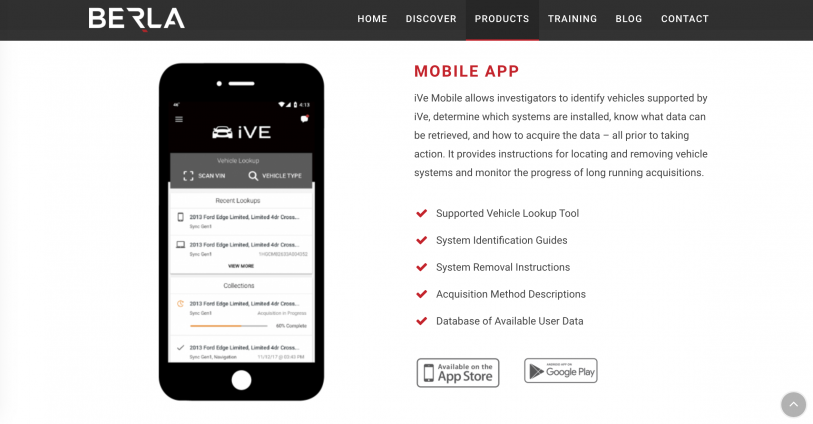Last month, the big data analytics company Palantir, which has been criticized for its collaboration with US immigration agencies, made headlines when it extended its contract with the Department of Homeland Security’s Immigration and Customs Enforcement. The $49 million ICE contract is to supply the agency with its Investigative Case Management (ICM) software, which is used for a variety of purposes, including to facilitate the process of deporting undocumented immigrants. ICM is used by both ICE’s Enforcement and Removal Operations (ERO), which is typically tasked with detention and deportation, and the agency’s Homeland Security Investigations, as The Intercept reported in March. And a document, obtained in May by Latinx activist group Mijente, notes that HSI has been involved in efforts to target and arrest family members (including undocumented ones) of children crossing the border alone.
Palantir, which declined to comment on its new ICE contract, isn’t the only big data company working with ICE, whose primary mission under the Trump administration has been to deport millions of immigrants. Though such contracts are controversial, spark outrage, and have led in some cases to a backlash from employees and activists, there is a universe of giant companies and under-the-radar startups eager to do the work.

“Contractors seek opportunities where they can provide goods and services to the federal government,” says Scott Amey, General Counsel The Project On Government Oversight (POGO), a nonpartisan independent watchdog that investigates and exposes waste, corruption, and abuse of power, and which has recently given testimony on immigrant detention centers. “While some companies might avoid socially or ethically concerning contracts, others will be happy to jump right in, thinking that if it isn’t us, it will be someone else. Hopefully, the products or services are essential and the contracting process is competitive and well-informed.”
These lesser-known tech companies, like Chef, create everything from big data analytic systems to biometrics tools and are fiercely competing for a piece of ICE’s $7.6 billion budget. Other small contractors like Thorn are known for their crime-fighting tools, but in doing so, find themselves associated with the federal agency’s controversial detention and deportation policies.
Here are some of them:
Cellebrite
The Israeli big data firm Cellebrite’s claim to fame is its success at cracking San Bernardino shooter Syed Rizwan Farook’s iPhone. The original contract, worth $2.2 million, was renewed on August 6th for an estimated $30-35 million, and includes information technology equipment and system configuration. While this description, found on the Federal Procurement Data System, is quite vague, Cellebrite’s business model is focused on breaking into devices, from simple passwords to more complicated encryption.
Cellebrite’s main product is UFED InField, which is designed for “real-time extraction” data from devices. “Authorized field personnel can directly extract passwords, disable or bypass user locks and decode data from more than 1,500 mobile applications in minutes,” it says on its website. The company describes the product, UFED Ultimate, as an even faster way to break into devices. Cellebrite’s products Analytics allow users like ICE to carry out analysis of the data retrieved from devices.
And, as reported by The Intercept in 2017, funding documents for Palantir’s ICM mention that Palantir’s other product, FALCON (designed for ICE’s office of Homeland Security Investigations), includes access to data obtained by Cellebrite.
“For security and privacy reasons, Cellebrite company policy prohibits us from discussing the details of our customers and clients,” Cellebrite’s Senior Director of Public Relations, Christopher Bacey, told Fast Company. “Everything we do on behalf of our digital intelligence, law enforcement, government and private enterprise customers is done to help accelerate criminal investigations and address the challenges of crime and security in a digital world.”
JSI Telecom
This DC-based engineering company, which has a contract with ICE that comes in at over $22 million, offers a big data platform that allows users, including the U.S. intelligence industry, to collect, analyze, and visualize vast amounts of data. Founded in 1979, its flagship product, 4sight, uses Deep Packet Inspection to intercept, collect, and analyze internet traffic. The ICE contract doesn’t specify what the agency is actually purchasing, but mentions “Title III Digital Collection Systems.”
As Privacy International noted in a May report, JSI Telecom also has contracts with the Drug Enforcement Administration (DEA) and the FBI. “It has also received payments from the State Department for projects in Guatemala and Indonesia, part of a broader programme of US agencies using aid and other public money to empower foreign security agencies with surveillance capabilities,” explained the group in a report. A JSI Telecom brochure, obtained by Privacy International, notes that 4sight can be used to surveil social media platforms, allowing users to establish connections between users.
JSI Telecom could not be reached for comment.
Berla Corporation
With its flagship product, iVe, Berla Corporation offers a forensic tool that can break into a vehicle’s data system. Once inside, it can locate, organize, and analyze a vast range of information that often includes data that goes far beyond that generated by the car. In addition to its contracts with ICE, Berla is also a vendor for the U.S. Coast Guard, the Secret Service, ATF, FBI, DEA, and a number of other federal agencies.
On August 28, 2018, Berla entered into a contract with ICE for $199,875, earmarked for its Homeland Security Investigations (HSI) arm. Since then, ICE has awarded Berla two more contracts—one in April for $202,000 for “forensic equipment and software”, and another on September 19th for $106,854 for “information technology components” and “software.” Although Berla has been quite active with its ICE contacts in the last year, the firm has been one of the agency’s vendors for almost a decade—going back to 2010 during the Obama administration.

In 2018, the Journal of Applied Digital Forensics noted that there hasn’t been much research into the type of data logged by a car’s computer systems, how long these user artifacts remain, whether or not they can be removed, and if certain cars provide more data than others. In their study, researchers noted that today’s “connected cars” feature systems that “function like computers, storing information they process including user data from devices synced to the system.” The researchers studied cars of different makes and models with either a Uconnect® system or a Toyota™ Extension Box. The Toyota system provided a “significant amount of user information” like contacts, call logs, media file information, and locations, while the Uconnect system only provided location data. The study also noted that these systems can also log social media feed data.
The reason ICE might be so interested in Berla’s iVe is that it could be easier to extract call, text, browsing history, and other mobile data from a car’s hard drive than from the password-protected or encrypted smartphone itself. That said, the researchers noted they weren’t aware of iVe being used in any adjudicated cases.
Berla declined to issue a statement about its contracts with ICE or its iVe vehicle data extraction system.
Berkeley Research Group
A global consulting firm known for supporting companies in litigation and regulatory disputes, Berkeley Research Group, has a lesser known sideline in data analytics.
Just a week and a half ago, ICE awarded BRG a $1.1 million contract for an information technology software license. That comes on top of previous contracts for such licenses (one for $6.6 million earlier last month and $6.6 million in September 2018).
BRG offers dozens of services for government contracts, including accounting and estimating systems, litigation consulting, and bid protests. The new contract, according to the Federal Business Opportunities website, is for “investigative software licenses”.
David Teece, the founder of BRG, is a professor at the Walter A. Haas School of Business at the University of California-Berkeley. Somewhat surprisingly, BRG’s corporate consulting and federal contracts, including those with ICE, haven’t been actively criticized by students and faculty at the famously progressive university that serves as BRG’s namesake.
When contacted by Fast Company for this story, UC-Berkeley’s press office didn’t seem too concerned with BRG’s work with ICE.
“Dr. Teece is a part-time (50%) faculty member, and in addition to his faculty duties, he serves as Chairman and Principal Executive Officer of Berkeley Research Group, LLC (“BRG”),” said Dan Mogulof, Assistant Vice Chancellor of UC-Berkeley’s Office of Communications and Public Affairs. “It is a matter of public record that BRG is a party to certain contracts with the U.S. Immigration and Enforcement Agency. We have no comment to offer on what Dr. Teece does during his own time, off campus.”
Chainalysis
Another vendor making millions doing business with ICE is the blockchain company Chainalysis. Chainalysis’s first contract with ICE, awarded in May 2018, was for the modest sum of approximately $8,000, but large contracts followed. In September 2018, the company was awarded a nearly $1 million contract. And this September, Chainalysis—which could not be reached for comment—secured another contract with ICE for just over $1 million.
The company offers two products, KYT and Reactor, that allow government agencies to monitor cryptocurrency transactions. Chainalysis’s KYT is an automated crypto monitoring software for enterprise clients, while the company’s other product, Reactor, is designed for law enforcement.
“Chainalysis Reactor is the investigation software that helps law enforcement solve cases and prevent crime by linking real-world entities to cryptocurrency activity,” reads the Reaktor product page. Reactor is used around the world to understand cryptocurrency activities related to the flow of funds across borders. Analysts around the world use Reactor to understand cryptocurrency activities related to “sanctions, child exploitation, counterintelligence, and more”.
It’s unclear if ICE uses Reaktor to enforce immigration, or just for transnational crimes, which is also part of its mission.
Thorn
The Los Angeles-based non-profit Thorn is an outlier in this group of ICE vendors, as its co-founders are actors Ashton Kutcher and Demi Moore. In 2014, the organization launched Spotlight, a technology that identifies child sex trafficking victims who were being sold online.
Thorn’s first contract with ICE, signed on September 8, 2018, was worth $500,000, and involves information technology services. ICE renewed its contract with Thorn on September 10th of this year for $500,000.
A Thorn spokesperson told Fast Company that the organization works with ICE’s Homeland Security Investigations, Child Exploitation Unit. “Our contract is for a victim identification tool that is used solely to combat the sexual abuse of young children,” the spokesperson said.
Grayshift & Magnet Forensics
The company Grayshift, known for its iPhone-hacking software, has been awarded a number of ICE contracts over the last two years. Grayshift’s first contract with ICE, for information technology software, came in September 2018 and totaled $384,00. The second, awarded in May of this year, is worth $818,880.
The Atlanta-based company’s product, GrayKey, is known to be the world’s best iPhone hacking technology for law enforcement and intelligence officers. Beyond breaking passcodes, it can retrieve information from Apple’s mobile devices. Mijente, a national hub for Latinx grassroots and digital organizing, shared the actual 2018 contract between GrayShift and ICE, which details a purchase order for one of the company’s GrayKey hardware units for a 12-month period, starting September 12, 2018 and ending September 11, 2019.
Earlier this year, Grayshift and Magnet Forensics announced a partnership that will allow law enforcement agencies around the world to purchase GrayKey through Magnet Forensics.
With offices around the globe, Magnet Forensics is also an ICE vendor, and contracts with other agencies like the U.S. Customs & Border Protection (CPB), FBI, and the Inspector General’s office. Since 2018, the company has had five different contracts with ICE, totaling over $1.4 million. Magnet Forensics most recent contract with ICE was awarded on September 20th for $999,401—an IT software license to be used by HSI.
Grayshift could not be reached for comment, and Magnet Forensics declined to comment.
Aware
The biometrics company Aware has a number of government contracts, most notably with the U.S. Navy. Much lesser known is a contract with ICE, signed in August of 2018, for “information technology software” for the agency’s Mission Support Dallas office.
Aware’s products include biometric enrollment, fingerprint, face, and iris recognition and authentication. One of Aware’s main products is Universal Registration Client (URC), which allows law enforcement to capture, store, and analyze an individual’s fingerprints, face, and iris. URC can also search for faces and analyze results, including the FBI’s Interstate Photo System and other facial images databases, according to the URC product page.
The 2018 contract, which was valued at just over $29,000, is paltry in comparison to other vendors in this list. And it doesn’t seem as if that contract with ICE has been renewed so far this year.
Integrated Biometrics
Unlike most of the above companies, the South Carolina-based biometrics company Integrated Biometrics does not shy away from its immigration work. On their website’s homepage, the company boasts of the U.S. Customs & Border Protection using its Kojak fingerprint scanners. Integrated Biometrics also sells Five-O, a fingerprint scanner that fits in a shirt pocket, as well as the Watson Mini and Columbo scanners. And its Sherlock scanner is designed to interfaces with “mobile computers, hand-held devices, smartphones and tablets.”

Integrated Biometrics could not be reached for comment.
Recognize your brand’s excellence by applying to this year’s Brands That Matter Awards before the early-rate deadline, May 3.
